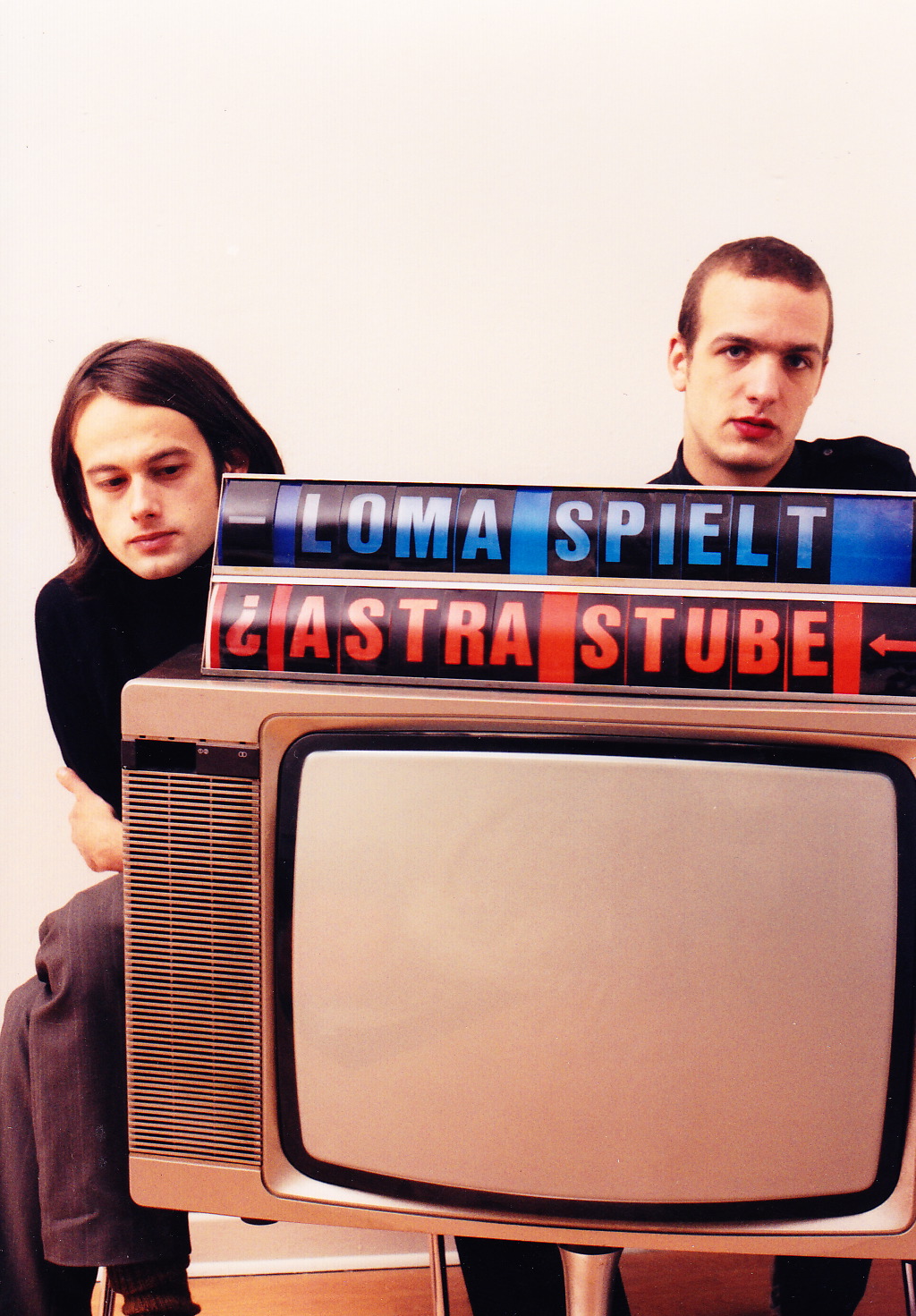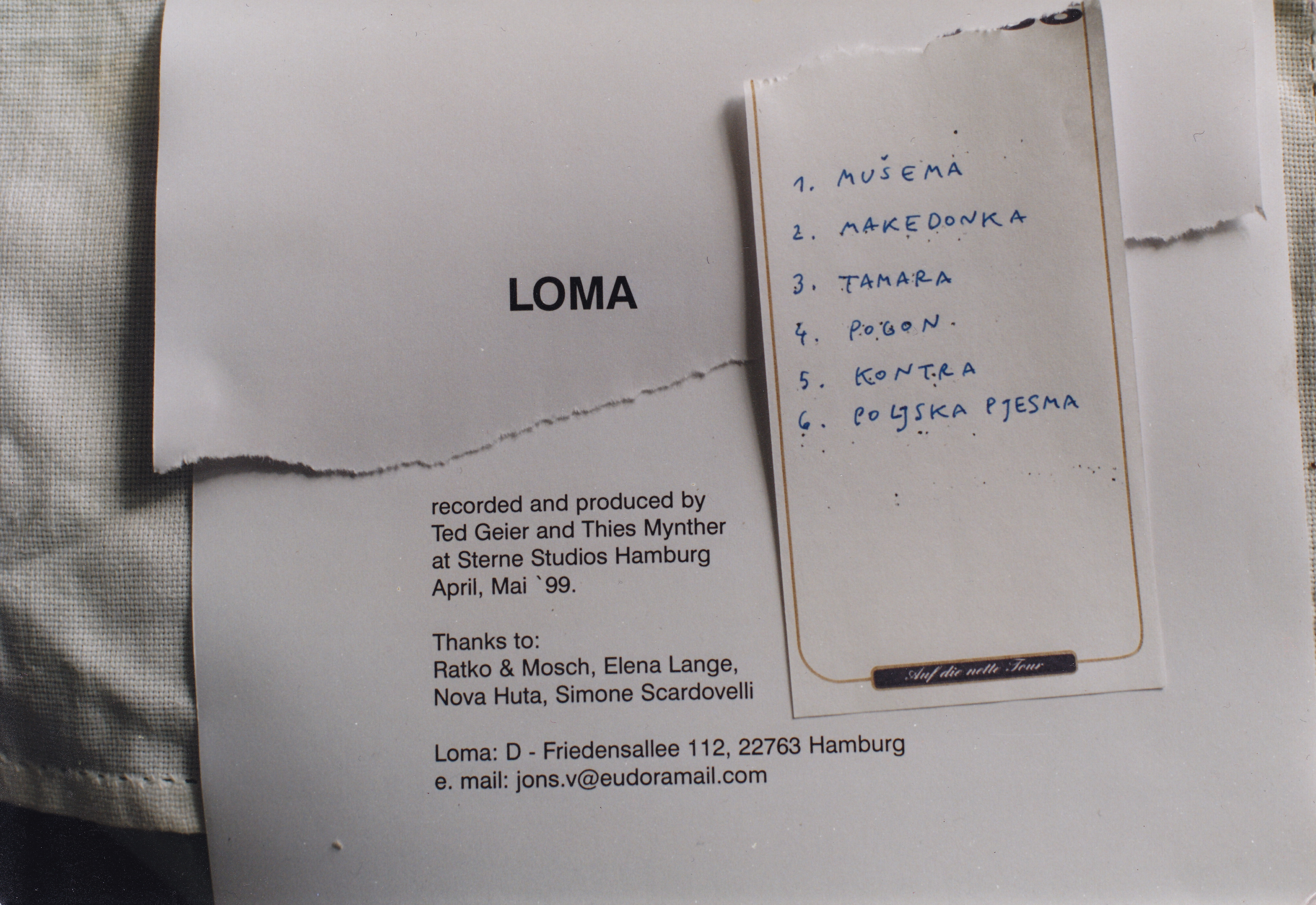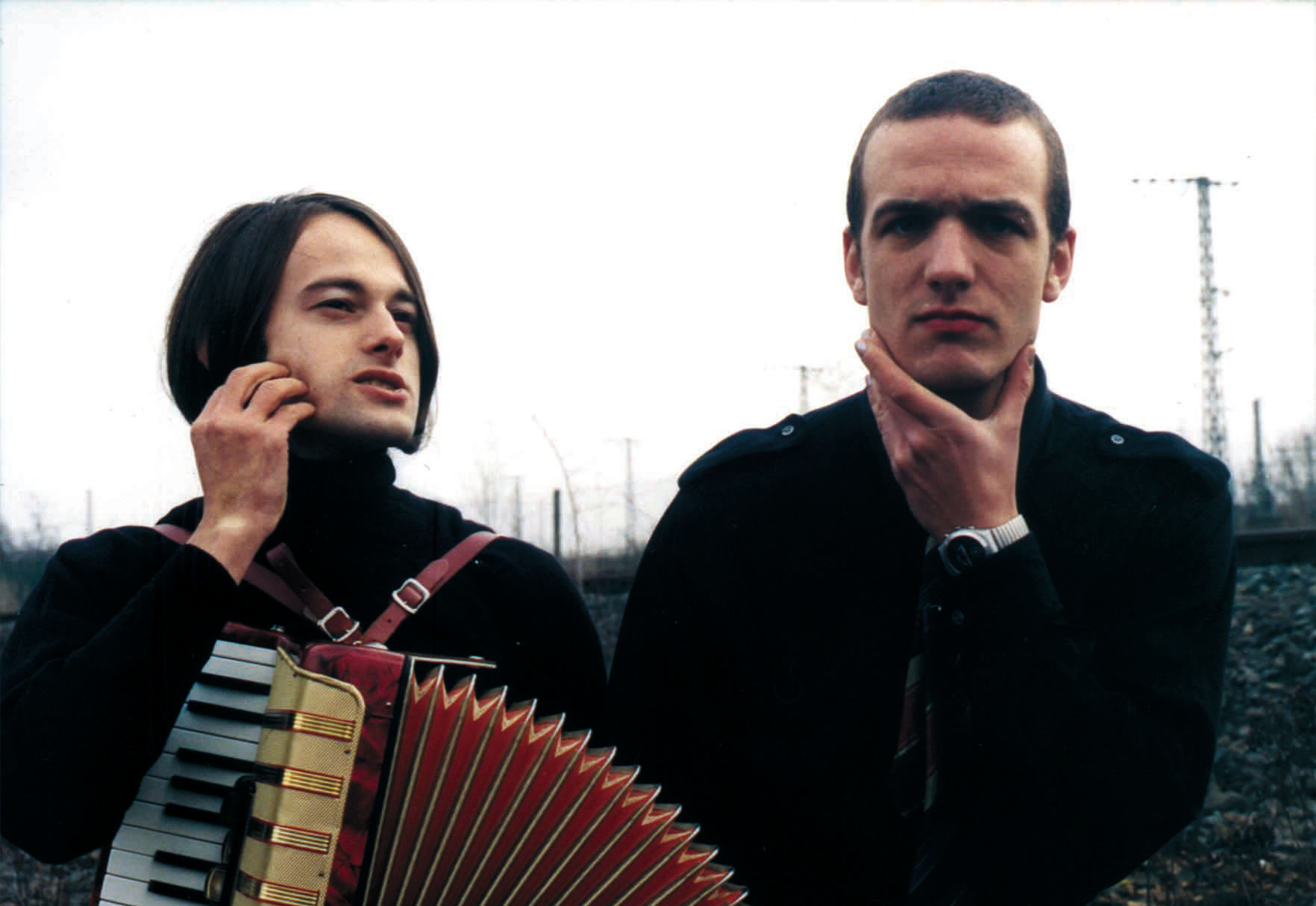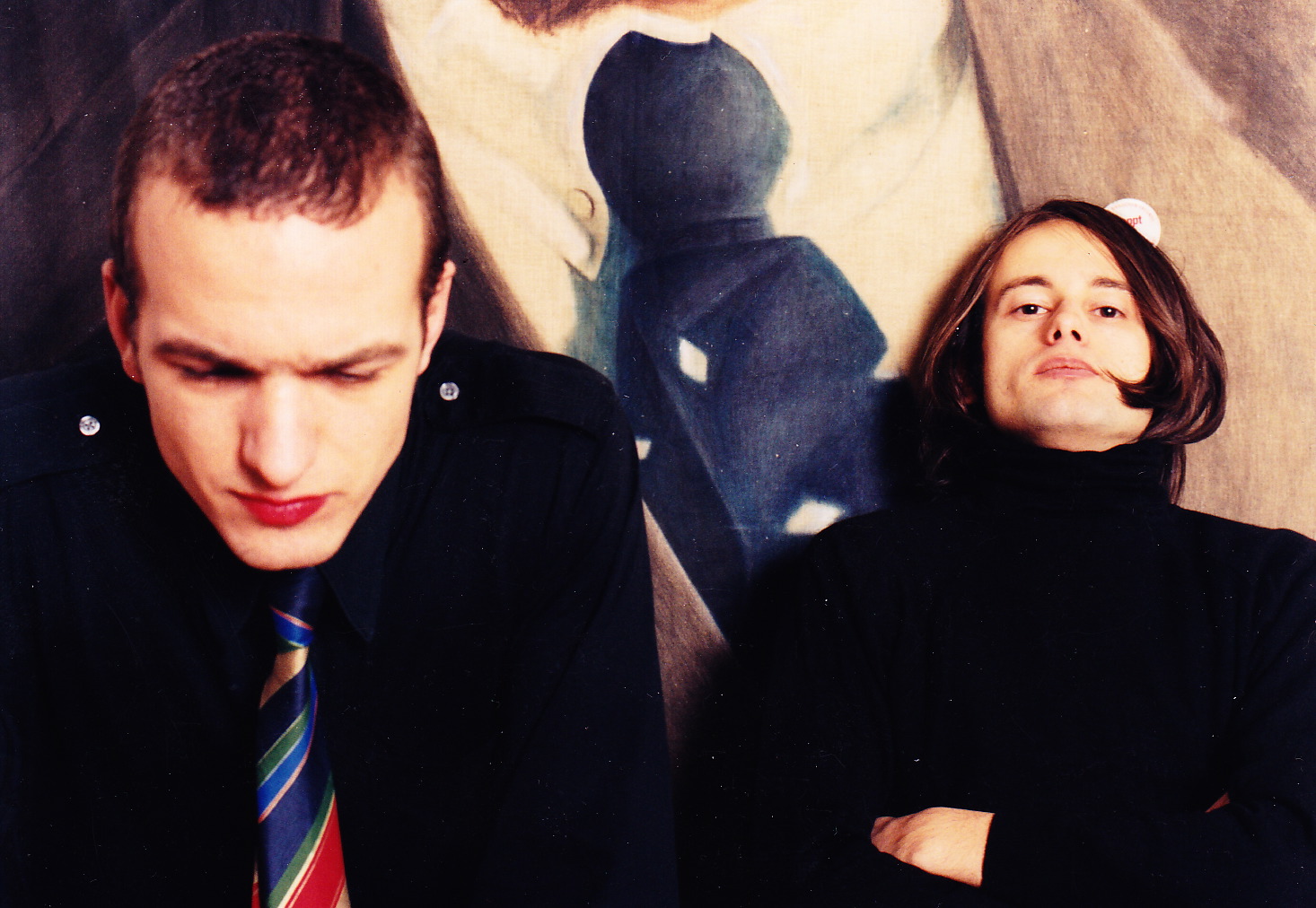LOMAMusic: 1995 - 2004
Short description:
Music: 1995 - 2004
Guitar/ Voice/ Keyboard: Adnan Softić
Drums/ Voice: Jons Vukorep
Short description:
Loma's power is contained in insinuating an outburst, which finally is refused. Punk past and abstract art future, Slavic folklore and American noise, love and violence are contracted to form a bulky solid body by this Hamburg-based duo.
Jan Moeller





We take all the things that distinguish a band – pressure, presence and a unique sound – and extract whatever we can: melodies from the notes, texts from the vocals, verses and choruses from the songs; not always everything but at least enough for the tracks to become brittle and in danger of falling apart, even when they still hold together. On this threshold to dissolution it becomes evident what music is able to achieve when it keeps on going despite inner resistance: It makes it possible to experience an area of transgression, in which everything stands or falls, falling while standing and standing while falling. Loma’s intention is, through their music, to move towards and somehow inside of this threshold area. They do not do this consciously. Things must first develop. In Loma this is a result of the dynamic between the two parts of the band, Adnan Softić and Jons Vukorep, between the guitar playing and vocals of the one and the drumming and vocals of the other. Potentially, this is always just as much a collaborative as it is a competitive action. However it is not really only about improvisation. There are arrangements, one can hear that, because there are sequences built into the pieces. However it is just as evident that the arrangements are not the decisive factor in Loma’s music. The calling is audibly more important than the arranging. Loma develop most of their pieces in a dialogue of vocals. One of them begins, sings, calls or shouts something and the other calls something back, completes the sentence or joins in with a note and holds it. Sometimes the sounds are Bosnian words, which they hurl at each other and at the audience like slogans. Sometimes though they are calls that only consist of a single note (or sound) that one of them emits and the other one joins in with. Together, they hold the note for as long as seems appropriate. Long. Or short. Calling is more than just a motif but is also a way for Softić and Vukorep to bundle their energy and direct it outwards.
Perhaps the best, or even the only appropriate way to respond to Loma is not to talk about them but to call back to them and hold the note as long as one feels is appropriate:
Uaaaaaaaaaaaaaaaaaaaaaaaaaaaaaaaaaaaaaaaaaaaaaaaaaa
Uaaaaaaaaaaaaaaaaaaaaaaaauuu uaaaaaaaaaaaaaaaa aaaaaaaaaaaaaaaauaaaaaaaa
Uaaaaaaaaaaaaauaaaaaaaauauuuuuuuuuuuaaaaaaaaa uaaaaaaaaaa
However, maybe that is still not enough. Loma’s music is not without content. The threshold area that Loma enters, between standing and falling, between articulated music and pure dynamics, reverberates with many audible elements that are not explicitly played, voiced or sung. There are a whole lot of songs and melodies that can be heard in Loma’s pieces, yet they are never completely tangible. Softić’s chords are just as frequently plucked strings as they are open strings or struck (ist das mit “klingende Seite gemeint?) and muted strings. Between unplucked and plucked, played and halted tones, tensions develop that enable one to hear notes that no-one is really playing and as a result no-one can really control though they still somehow exist. It is like with feelings. Vukorep’s drum-playing is equally mechanical as it is emotional and powerful, because it is driven by the urge to control a feeling rhythmically, although one is not able to control it fully. As a result the rhythm is continually drawn out from within and broken down. However this never stops the machine but is in fact exactly what gets it running.
One could say a great deal about the songs and emotions that are both present and absent in Loma’s music. Yet sometimes by voicing the unspoken one only makes it even more unspeakable. However what really characterizes Loma is that they make no secret of many things that are unspoken: when they play, the place where they both are and are not – Bosnia – is a place where people traditionally called out to each other from the hills across the valleys, in a language that Loma sometimes uses, sometimes doesn’t. In this way, the memory is perhaps pinpointed. However this does not say much about themselves, except that in general the subject of recollections and emotions is always somehow there and not there. The decisive factor is simply that Loma plays out this blurriness from here and there with complete clarity, on all levels of text, tone, melody, pure sound, solidarity and dissolution. However, each recollection, each feeling not only has a history but also a present and the strength to transcend the past. That is the point at which every piece by Loma charges and discharges its energy differently, now, in the moment in which one hears it, and on the other hand would perhaps like to answer in this and no other way:
Uaaaaaaaaaaaaaaaaaaaaaaaaaaaaaaaaaaaaaaaaaaaaaaaaaa
Uaaaaaa aaaaa
Aaa
Jan Verwoert